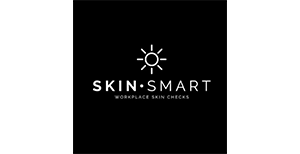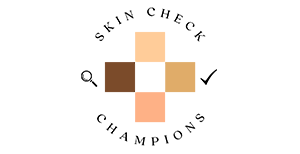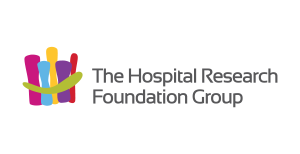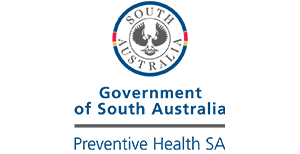The problem
More than 1400 Australians will die each year from skin cancer by 20301. That’s more than 7000 skin cancer deaths in the next five and a half years2. That’s the reality we face if early intervention is not significantly improved. Even with significant investment in prevention campaigns, skin cancer rates are increasing, with more than 60% of Australians being diagnosed with skin cancer within their lifetime3. Despite these alarming statistics, Australia does not have a population-wide skin cancer screening program. Early detection currently relies on screenings conducted by general practitioners (GPs). GPs work in partnership with primary care nurses in rural and remote areas and, together, play a vital role in early detection. Early detection in these regions is particulary critical, as rural and remote residents have 15–31% higher rates of skin cancer than the national average4.
The solution
Early skin cancer detection currently relies on screenings conducted by general practitioners (GPs), who work in partnership with primary care nurses in rural and remote areas. Together, they play a vital role in early detection.
Addressing the need for early skin cancer detection is a primary focus of the University of South Australia’s Rosemary Bryant AO Research Centre (RBRC).
RBRC has recognised that nurses working in regional and remote locations are ideally positioned to conduct skin checks and support continuity of care for their communities.
Accordingly, RBRC has launched a nine-week training program, where nurses have been taught to perform dermoscopic skin assessments and to apply artificial intelligence (AI) medical photography as a learning tool.
As part of their training, these nurses have conducted skin checks at pop-up clinics in six regional communities across South Australia.
The pop-up clinics are part of ‘Project Check Mate,’ a partnership between UniSA's RBRC, The Hospital Research Foundation Group, Skin Check Champions, Skin Smart Australia and, more recently, Preventive Health SA.
The project aims to improve the quality and accessibility of skin checks in regional areas and the nine-week training training model has been adopted by key South Australian industry leaders.
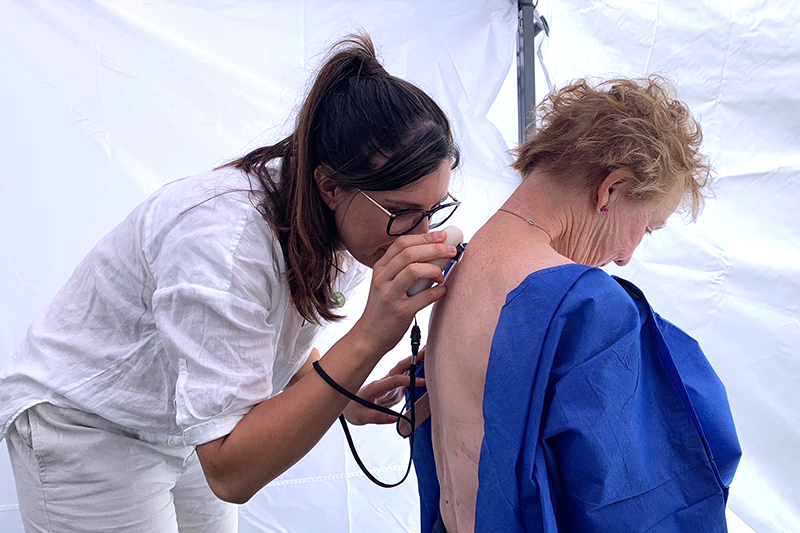
Caption: Preventive Health SA has funded the Royal Australian College of General Practitioners (RACGP) accredited training for over 500 GPs – including a face to face practical. More than 140 GPs will be trained over the next two years, helping foster enhanced multidisciplinary care in rural and remote South Australia.
RBRC Director and Professor of Cancer Nursing, Marion Eckert, says the primary care nurses have screened nearly 1000 South Australian regional community members.
“This is the first time AI was turned on in regional South Australia to support skin cancer education and detection,” Prof Eckert says.
“The primary care nurses trained were able to apply their dermoscopic training and AI-technology training to detect more than 200 suspicious lesions – lesions which may have been discovered far too late, if at all.
“While screening community members, we also asked if they’d ever had their skin checked and more than 55% said no.
“We know that the early detection of skin cancer is vital to survival and a targeted skin cancer screening program has the real potential to increase survival rates.”
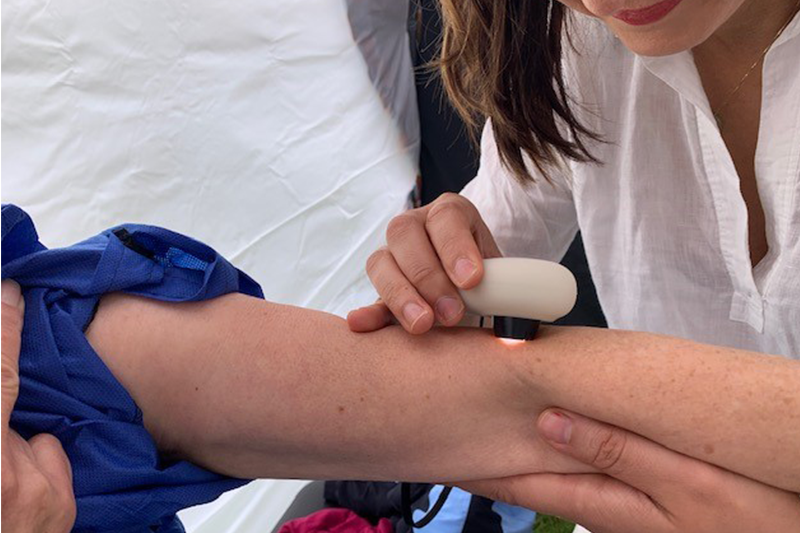
Caption: Validating a nurse's detection of suspicious lesions with AI allows for enhanced decision-making and informed, high-quality referrals. It also supports nurses working in isolated locations, who often lack easy access to other clinicians, like GPs or dermatologists. Importantly, the AI is used purely as a decision support tool, not a diagnostic tool.
Prof Eckert says that validating a primary care nurse’s detection of suspicious lesions with AI allows for enhanced clinical decision-making and appropriate referrals.
She says it also supports nurses working in isolated locations to refer patients to doctors for further investigation and treatment.
“We have partnered with medtech company, MetaOptima, to utilise their dermatology software to take images of skin lesions,” Prof Eckert says.
“Once our nurses identify a suspicious lesion, they take a photo and the AI then analyses the image against its rich database, providing an innovative educational resource.
“The platform enables appropriate reporting of the lesion, and the images are stored online for the consumer to access and show their doctor, enabling mobility of the images for further follow up.
“By using this technology in our training program, UniSA has launched regional South Australia’s first AI-based triage and decision-support model for nurses and GPs.”
Project Check Mate has received significant attention from the community, as well as the government and private sector.
Now, industry giant BHP has adopted Project Check Mate, using UniSA’s training model to upskill its own on-site nurses at Carrapateena.
BHP’s Carrapateena Superintendent of Health & Emergency Services, Raf Sciezka, says Project Check Mate has already “paid dividends”.
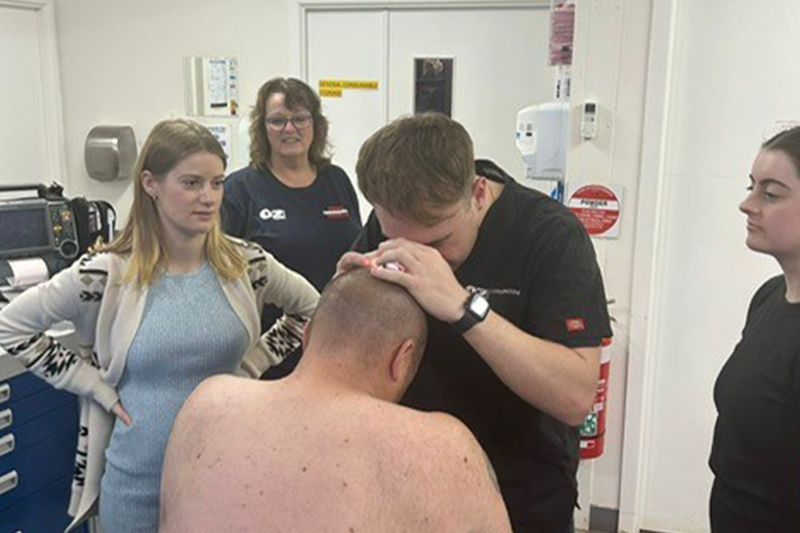
Caption: UniSA's dermoscopic training model has been adopted by BHP, which has used the educational program to upskill on-site nurses at its Carrapateena site in SA. The nurses can now incorporate regular skin checks into standard health appointments while also tracking changes to workers' skin over time.
“Previously, we’d run concentrated skin check ‘campaigns’ and we’d miss people because of their rosters but now our nurses can incorporate skin checks into our standard on-site health appointments,” Mr Sciezka says.
“We have a very stable workforce, meaning a lot of our people have worked here at BHP for a long period of time, so the training received through Project now allows our nurses to track changes in our workers’ skin.
“It also means our nursing staff can build mole maps of our workers and paint a more holistic picture of their skin health.
“Already, our nurses have identified eight workers on our site as having ‘high risk’ lesions and these workers have been quickly referred on to doctors.”
“This partnership between UniSA and BHP has paid dividends – we’re investing in the health of our workers while also upskilling our health staff and investing in their professional development.”
UniSA's RBRC believes that a committment to combating escalating skin cancer rates means dealing with the whole community and targetting those at risk. This has led to the expansion of the Project Check Mate program into SA Prison Health, with an early pilot program underway.
UniSA supports health, medical and care capabilities through collaborative research projects with public and private enterprises. Enhance your own capabilities by connecting with UniSA via our Enterprise Hub.
[1]State of the Nation, A Report Into Melanoma
[2] State of the Nation, A Report Into Melanoma
[3] About skin cancer, Cancer Council NSW
[4] Cancer Statistics for Small Geographic Areas, AIHW 2019
Partners Involved
Related services
Contact the Enterprise Hub
Get in touch with us to find out how we can support your business needs.
Make an enquiry online or call us to discuss your idea





